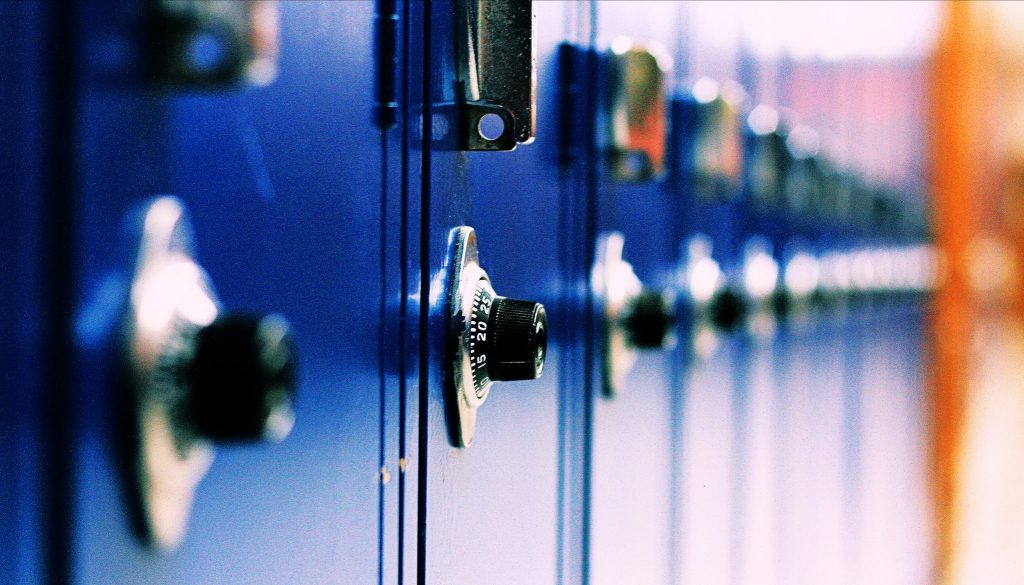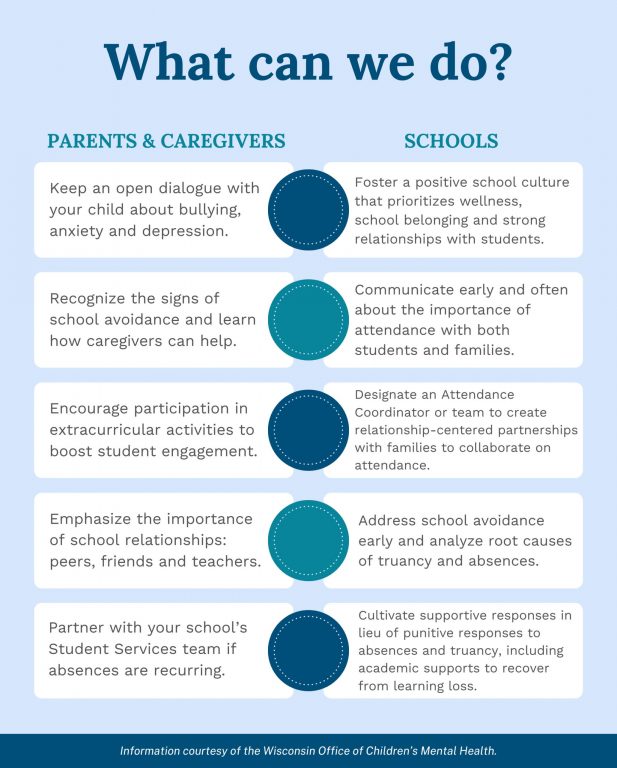Are Student ‘Mental Health Days’ a Problem for Schools?
Some experts worry about trend. Absenteeism at Wisconsin schools up to 22%.

School lockers. Photo by Phil Roeder (CC BY 2.0)
Many parents are leaning into the idea of student mental health days.
But some health care experts say missing school can exacerbate rather than help a student’s struggles with anxiety and other mental health issues.
Chronic absenteeism rates in Wisconsin rose to their highest level in 2022 at 22.7 percent. That year, 134,597 students were chronically absent from school.
A student is considered chronically absent when they attend fewer than 90 percent of school days.
Rates have since declined to 17.7 percent in 2024 but are still higher than the pre-pandemic rate of 12.9 percent in 2019.
The reasons behind school absences are varied and complex. Chronic absenteeism is often the result of intertwining social, financial, mental, physical and family issues, according to the Office of Children’s Mental Health.
But since the pandemic, parents have felt more comfortable allowing children to stay home, Hall said.
A 2021 survey by the National Alliance on Mental Illness found that 70 percent of parents support schools offering mental health days to students.
Twelve states currently allow for mental health days, including Illinois, where K-12 students in public schools are allowed five excused absences per school year for mental health reasons.
But Hall says research shows children who attend school regularly have better relationships with their peers and teachers.
“Not only is it these relationships, but it also affects their academic performance, their long-term wellness and earnings as adults,” Hall said. “It is an important cycle for people to be aware of.”
Hall said there is a tendency for schools to want to punish students who don’t come to school. Instead, she hopes educators, school nurses and counselors will reach out to see if mental health is playing a part in their absenteeism.
About half of the students in Milwaukee Public Schools are chronically absent, according to state data.
“We need to address mental health issues,” Cassellius said. “Make sure that kids have that support in school, and that they have a trusted adult that they can turn to who is safe and welcoming.”
Cassellius said “safe and welcoming” aren’t just buzzwords. They are actions that matter to young people.
“We say (‘safe and welcoming’) because it really matters,” Cassellius said. “Kids have to feel like they belong. They have to see each other and see themselves in school and have trusted adults who care for them and check in with them every day.”
Experts: ‘Mental health days’ for students can make things worse was originally published by Wisconsin Public Radio.
If you think stories like this are important, become a member of Urban Milwaukee and help support real, independent journalism. Plus you get some cool added benefits.






















